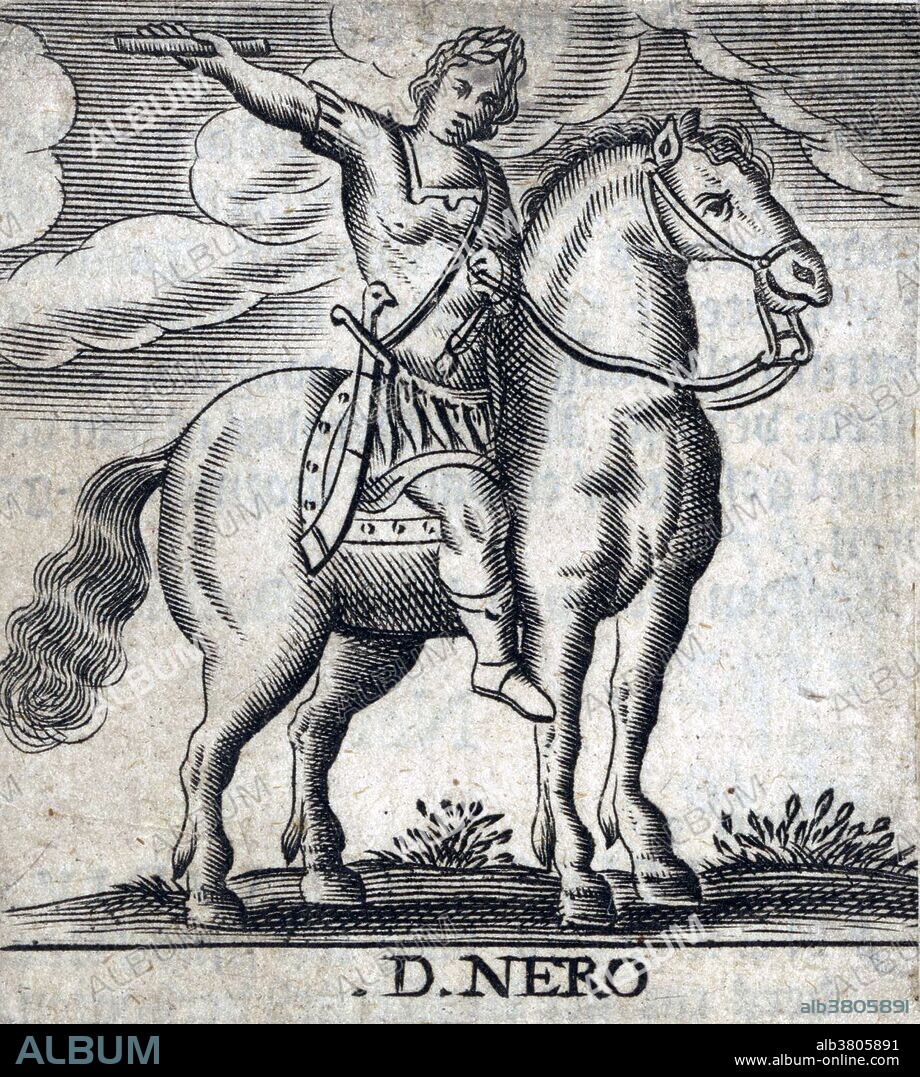alb3805891
Nero, 5th Emperor of Rome

|
Añadir a otro lightbox |
|
Añadir a otro lightbox |



¿Ya tienes cuenta? Iniciar sesión
¿No tienes cuenta? Regístrate
Compra esta imagen.
Selecciona el uso:

Título:
Nero, 5th Emperor of Rome
Descripción:
Ver traducción automática
Nero (Nero Claudius Caesar Augustus Germanicus (37 - 68 AD) was Roman Emperor from 54 to 68, and the last in the Julio-Claudian dynasty. During his reign, Nero focused much of his attention on diplomacy, trade, and enhancing the cultural life of the Empire. He ordered theaters built and promoted athletic games. Nero's rule is often associated with tyranny, extravagance and executions (including his mother and stepbrother). In 64, most of Rome was destroyed in the Great Fire of Rome. For six days and seven nights the citizens of ancient Rome watched helplessly as their city burned. After it was over, 70 percent of the city had been destroyed. Many Romans believed Nero himself had started in order to clear land for his planned palatial complex, the Domus Aurea. In 68, the rebellion of Vindex in Gaul and later the acclamation of Galba in Hispania drove Nero from the throne. Facing assassination, he committed suicide. One of a set of twelve engravings of Roman emperors on horseback, Netherlands, 17th century.
Crédito:
Album / Science Source / Folger Shakespeare Library
Autorizaciones:
Tamaño imagen:
3000 x 3340 px | 28.7 MB
Tamaño impresión:
25.4 x 28.3 cm | 10.0 x 11.1 in (300 dpi)
Palabras clave:
ANTIGUA ROMA • ARTE • BLANCO Y NEGRO • DIBUJO • DINASTIA JULIO-CLAUDIA • DIPLOMATICO • EMBAJADOR • FAMOSA • FAMOSO • FIGURA • GENTE • GRABADO EN MADERA • HISTORIA • HISTORICO • HOMBRE • HOMBRES • ILUSTRACION • IMPERIO ROMANO • IMPORTANTE • MASCULINO • NERON • OBRA DE ARTE • PERSONA • PERSONALIDAD • PERSONALIDADES • PLANCHA DE MADERA • RETRATO DE HOMBRE • ROMANO ANTIGUO • ROMANO • SIGLO-I • XILOGRAFIA
 Pinterest
Pinterest Twitter
Twitter Facebook
Facebook Copiar enlace
Copiar enlace Email
Email
